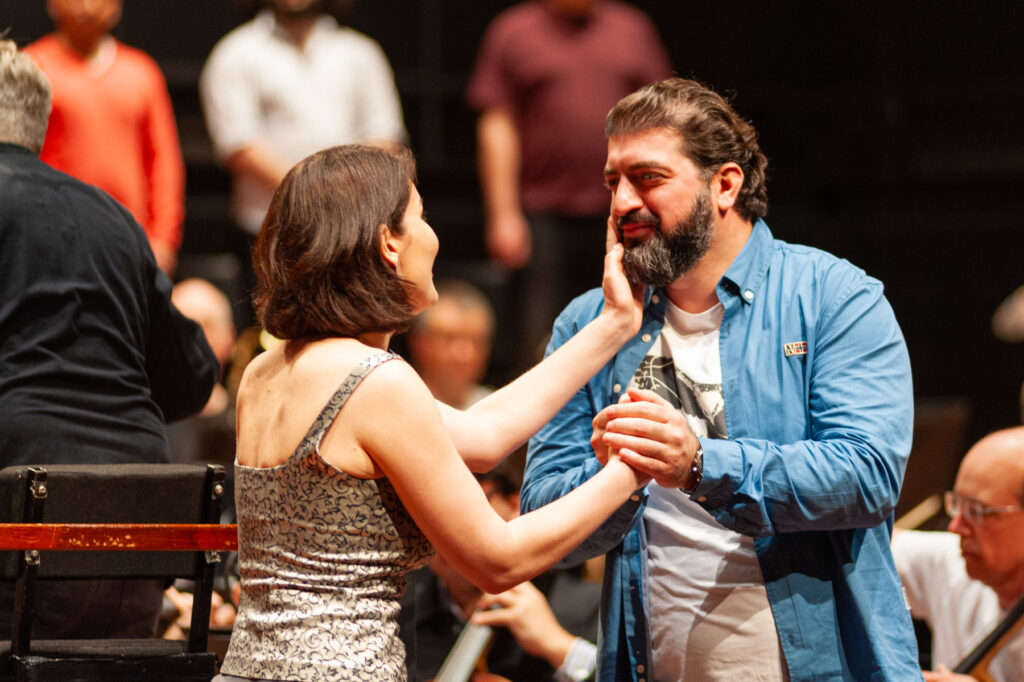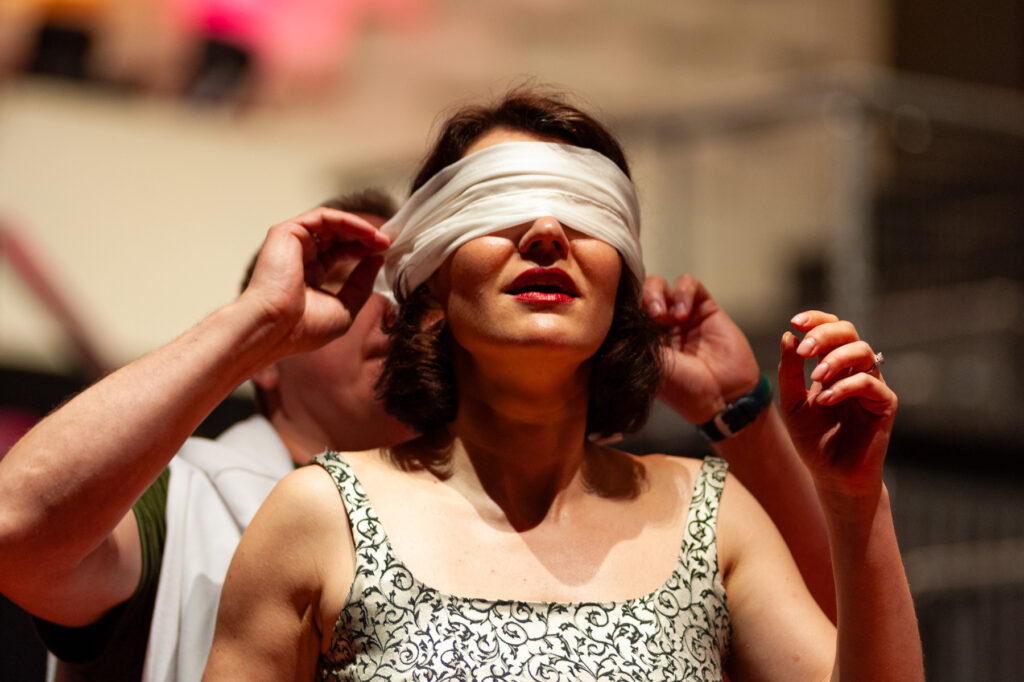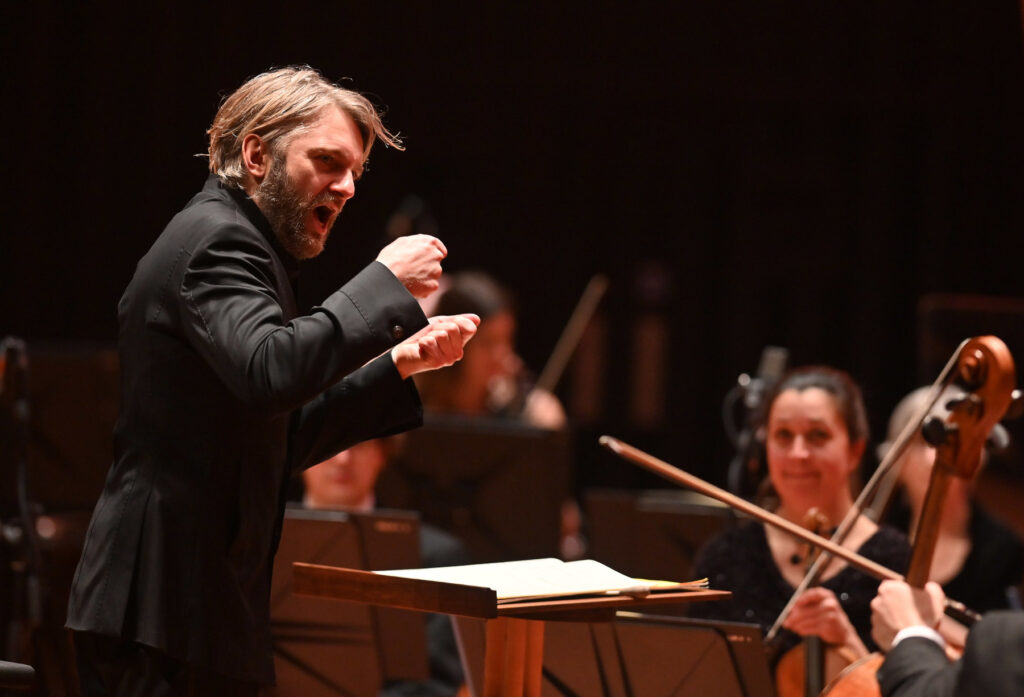“Who’d have thought it could happen in Poole” voiced one overawed audience member. He was not referring to the standing ovation, although that in itself was exceptional, but the outstanding account of Tchaikovsky’s seldom heard final opera Iolanta. And judging from the ecstatic reception at the Lighthouse, this concert performance was a revelation in terms of its sublime score and the remarkable music making from an international cast of singers and the excellent Bournemouth Symphony Orchestra. Yet again, Kirill Karabits has made a bold programming choice, introducing a work that few will have heard before in Dorset. Indeed, this was the first performance of the work by the BSO.

Tchaikovsky’s single act lyric opera is drawn from a Danish verse drama of 1845 by Henrik Hertz, set in 15th century Provence, and entitled King René’s Daughter. The composer was particularly taken with the operatic potential of the play, claiming he was enchanted by its “poetical quality and abundance of lyrical moments.” The work was prompted by a commission from St Petersburg’s Imperial Theatre for a double bill – a ballet based on E.T Hoffmann’s fantastic tale The Nutcracker and an opera based on Hertz’s play. Its first performance in 1892 drew faint praise from one critic asserting “it will always remain a dear poetic work and will occupy a place among the best works of its immortal composer”.
If not as grandiose as Eugene Onegin or The Queen of Spades, this romantic fairy tale has some magnificent music, and its feel-good ending in no way detracts from its overall effectiveness. Iolanta is the blind daughter of King René who, in protecting her from the knowledge of her affliction, isolates her from the world in a secluded garden. Her only companions – ladies-in-waiting – are forbidden under pain of death to mention anything about colour or light. Yet Iolanta finds true beauty with sightless eyes, innocent of the strange lies and deceptions that surround her. The King refuses to accept the advice of the celebrated physician, Ibn-Hakia who claims his daughter can only be cured if she is made aware of her blindness. Ignoring warnings not to enter Iolanta’s garden, two young knights, the Duke Robert of Burgundy (her intended bridegroom who wishes instead to wed Mathilde) and his friend Count Vaudémont stumble into the castle grounds where they find Iolanta asleep. Vaudémont instantly falls in love with her and explains the truth about her sight. Learning of his disclosure, the King condemns Vaudémont to death but relents after Iolanta agrees to corrective therapy so as not to lose the man she loves. She and Vaudémont are united and King René releases Robert from his obligations to Iolanta and the opera ends in matrimonial rejoicing and a joyous hymn of praise to God’s light and the healing power of love.

Beyond a display of red and white roses at the front of the platform, our imaginations were left to supply images of a royal garden and a hunting party. Olga Kulchynska as Iolanta superbly fulfilled a role requiring inner fragility and outer passion. She could slim down her full soprano voice to the softest, most confessional of tones, while producing a thrillingly ardent sound that could soar over the orchestra. No less persuasive was her body language, combining a certain unease when staring into the mid-distance with an ability to wring every ounce of emotion when asking to know the whereabouts of Vaudémont when handing him a white rose.
Goderdzi Janelidze made an imposing presence as King René, initially blustery and not quite exuding nobility, he eventually gained our sympathy despite his misguided control of his daughter. There was plenty of authority in his stentorian baritone, though his opening arioso (one of Tchaikovsky’s loveliest creations) felt more like a command than a prayer for Iolanta’s recovery. Pushing the voice so early robbed its climactic closing bars of their full impact. Maxim Aniskin as the Moorish Ibn-Hakia was a worldly-wise figure whose smooth baritone wrapped itself around his physician’s aria with considerable poise. Yuriy Yurchyk was a self-absorbed Duke of Burgundy, his paean to Mathilde a little garbled, though suitably heartfelt, and raised the first spontaneous applause of the evening. It was Alexey Dolgov as Count Vaudémont whose heroic tenor found a natural habitat for Tchaikovsky’s soaring melodies, easily winning the hearts of Iolanta and the audience. His grand duet with Kulchynska at the work’s climax brought the evening’s finest singing.

Elsewhere, Iolanta’s companions; soprano Galina Averina (Brigitte), mezzo Natalia Kutateladze (Laura) and contralto Maria Schellenberg (Marta) provided plenty of charm in their lullaby. Meanwhile, tenor Egor Zhuravskii as Alméric, armour-bearer to King René, and Congolese bass Blaise Malaba as Bertrand, doorkeeper to the castle, acquitted themselves with aplomb.
Behind the singers, Karabits fashioned a hard driven yet richly expressive account, illuminating the numerous delights of Tchaikovsky’s score, allowing each section of the orchestra their moments in the sun. In summary, a revelatory evening that showed how glorious music and inspirational singing can trump the most sentimental of plots. That standing ovation said it all!
David Truslove
Iolanta
Music composed by Pyotr Ilyich Tchaikovsky
Libretto by Modest Ilyich Tchaikovsky after King René’s Daughter by Henrik Hertz
Cast:
Iolanta – Olga Kulchynska; King René – Goderdzi Janelidze; Robert Duke of Burgendy – Yuriy Yurchyk; Count Vaudémont – Alexey Dolgov; Ibn-Hakia – Maxim Aniskin; Bertrand – Blaise Malaba; Alméric – Egor Zhuravskii; Marta – Maria Schellenberg; Brigitte Galina Averina; Laura – Natalia Kutateladze; Iolanta Chorus, Bournemouth Symphony Orchestra, Conductor – Kirill Karabits
The Lighthouse, Poole, Dorset, 8 May 2024
All photos courtesy of Bournemouth Symphony Orchestra